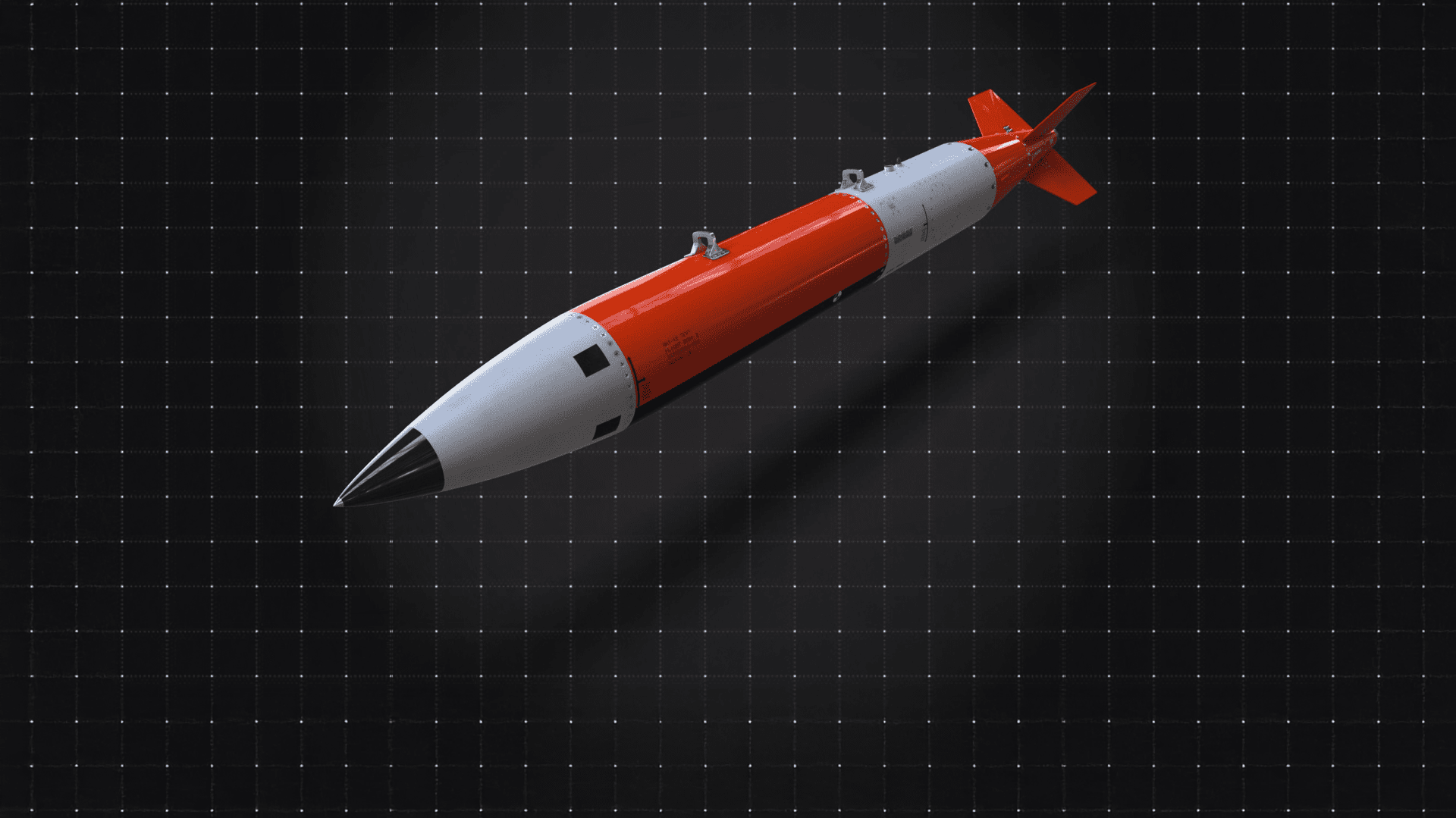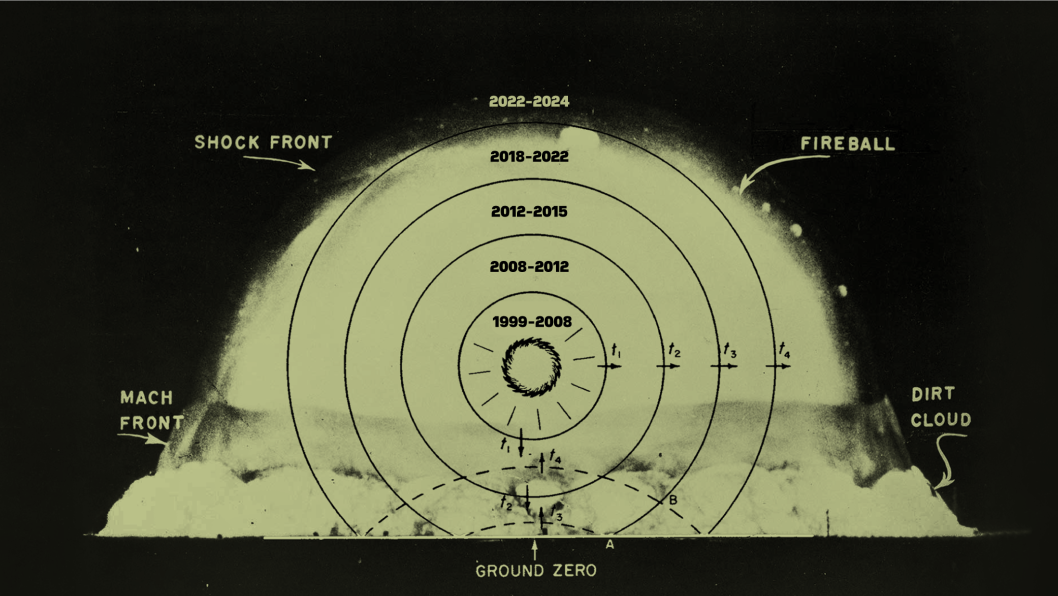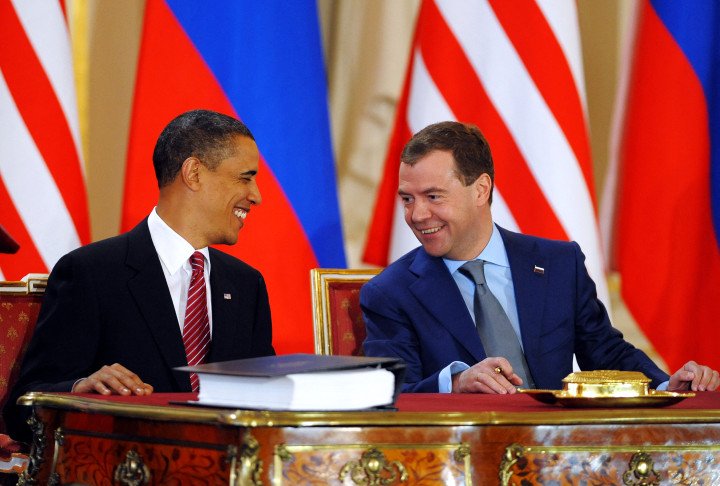- Category
- War in Ukraine
The US is Modernizing Its Nuclear Weapons. Could This Achieve Peace Through Strength?

Against the backdrop of Russia’s nuclear threats and its suspension of arms control agreements, deterring nuclear attacks against American allies remains a crucial security priority for the US. To address this, the country is modernizing its nuclear weapons and refurbishing its aging stockpile. But what is the new US program, and why do experts think it’s important for global security?
The US has completed modernizing the B61-12 nuclear gravity bomb as part of its “Life Extension Programme (LEP).” The B61-12 is air-launched with around 30m accuracy in striking its targets. It has a low-yield nuclear warhead designed to destroy enemy targets with minimal collateral damage.
The B61-12's first system qualification test flight was conducted in March 2017 from the US Air Force’s F-16 Fighting Falcon aircraft, a fighter jet in Ukraine’s arsenal.
The US Department of Energy’s National Nuclear Security Administration (NNSA) has extended the bomb's service life by at least 20 years by refurbishing, reusing, or replacing all its nuclear and non-nuclear components.
The B61-12 is critical to sustaining US and NATO allies’ nuclear deterrent capability. The B61 family of gravity bombs have been deployed from US Air Force and NATO bases for over 50 years of service, making them the oldest weapon in the US nuclear weapon stockpile according to NNSA.
There are another six active weapons modernization programs, which NNSA says demonstrate deterrence and assurance for the US, its allies, and adversaries. NNSA will also start producing the B61-13 bomb and a total of 400 bombs are expected to be refitted according to reports.

Why is the US modernizing its nuclear weapons?
The Russian leader Vladimir Putin announced in February 2023 that Russia would suspend its participation in the New START (Strategic Arms Reduction Treaty), the last remaining US-Russia arms control pact. The New START treaty establishes limits on deployed strategic nuclear weapons.
In June, 2023, the US and Russia agreed to extend the treaty through February 4, 2026, according to the US Department of State. Less than a year later, in February 2024, Russia sent a diplomatic paper rejecting the US proposal to resume arms control talks, according to US officials.
Russian Foreign Minister Sergey Lavrov said that amid a “hybrid war” waged by Washington against Russia, Moscow doesn’t see any basis for additional joint measures in the sphere of arms control, and reduction of strategic risks.

Moscow has repeatedly threatened Ukraine’s Western allies with nuclear weapons in response to their support for Ukraine. Recently, Russia has been in talks with Iran to strengthen its nuclear capabilities. In December 2024, President Zelenskyy called for firm action against Putin’s nuclear threats. “All possible sanctions should be taken to prevent any leader from even thinking about it, Putin as well as anyone else. Unfortunately, we do not see enough firm reactions to him.”
Russia’s resistance to the New START treaty, along with Moscow’s growing alliance with other nuclear powers, and Putin’s persistent nuclear threats, is likely the result of the US nuclear modernization program. Some experts say the program is urgent, but that it might not be enough.
“The current nuclear modernization plan is necessary but insufficient for the challenges we face from China, Russia, North Korea, and potentially other nuclear powers,” Robert Soofer, a senior fellow at Atlantic Council, and leader of the Nuclear Strategy Project said. “Modifications to both strategic nuclear forces and theater nuclear forces are urgently necessary.”
“In this world, it is even more prudent that the United States recapitalize the nuclear enterprise infrastructure for the sake of national security.” Neil Narang, a nonresident senior fellow in the Forward Defense program, Atlantic Council said.
Only fools are not afraid of weapons. Vladimir Putin has lost his mind, his missile launches prove it. His threats should scare the whole world. There is talk of nuclear war!
President Zelenskyy
Experts like Retired US Lieutenant General Ben Hodges think that countries shouldn’t start producing their own nuclear weapons due to legal and diplomatic ramifications. “We live, as much as we would like it not to be so, we live in a nuclear world. And as long as bad people like Russia and China, North Korea, Iran have nukes or want to have nukes, you have to be able to deter that,” he told reporters.
Hodges says that as the US already has nuclear weapons. The US “should make it very clear that we will, in fact, be that nuclear deterrent for countries so that they don’t have to get their own nuclear weapons,” he added.
The US has significantly reduced its nuclear weapons since the Cold War. The US Air Force Nuclear Weapons Center announced that “deterrence remains a cornerstone of national security policy in the 21st century, and a fundamental role of United States’ nuclear weapons is to deter attack on the United States and its allies.”
They say that the new program to modernize their nuclear weapons, rather than start full-scale production, “is fully consistent with our strong opposition to the global proliferation of nuclear weapons.”
Hodges told UNITED24 Media that he doesn’t think that Putin will use nuclear weapons, “but the benefit comes from the threat that they might” and “our inaction, only leads to more aggression”.
Peace through strength
"Peace through strength" is a phrase that suggests that military power can help preserve and encourage peace between nations. The phrase is attributed to the policies of Roman Emperor Hadrian, who ruled from 117 to 138.
In the modern era, the phrase has been used several times in US politics, and Ronald Reagan cemented it during his 1980 campaign and has since been associated with America’s approach to global security.
Recently, President Trump revived the phrase in his rallies, writing on Truth Social: “Together, we will secure PEACE THROUGH STRENGTH, and Make America, and the World, SAFE AGAIN!”
“Not incrementalism, not abandoning Ukraine, not capitulating to the Kremlin’s nuclear blackmail, but strength,” said Andrew Chakhoyan, an academic director at the University of Amsterdam, commenting on Trump’s pledge. “If Trump’s promise is to mean anything, it must confront this truth: Russia’s war is one of conquest, and it can only end with the defeat of this empire.”
For the US, this philosophy has taken on renewed importance in the face of Russia’s aggressive behavior. From its threats of nuclear escalation to its suspension of arms control agreements like the New START treaty, Russia has signaled that it values power over diplomacy. These provocations leave the US and its allies little choice but to strengthen their own military capabilities. By modernizing its nuclear arsenal, the US aims to deter further aggression and assure its allies of their security.
For Ukraine and its Western supporters, this approach could be key to countering Russia’s nuclear threats and achieving peace through strength.
“What’s next?” asked President Zelenskyy at the European Political Community Summit. “Should Europe seek the favor of Kim Jong Un in hopes that he, too, will leave Europe in peace? No strong leader who helped build a united, strong, and peaceful Europe would even imagine doing this. But the concept of ‘peace through strength’ has proven its realism and effectiveness more than once. Now, it is needed once more.”
-46f6afa2f66d31ff3df8ea1a8f5524ec.jpg)


-554f0711f15a880af68b2550a739eee4.jpg)



-206008aed5f329e86c52788e3e423f23.jpg)
-1afe8933c743567b9dae4cc5225a73cb.png)